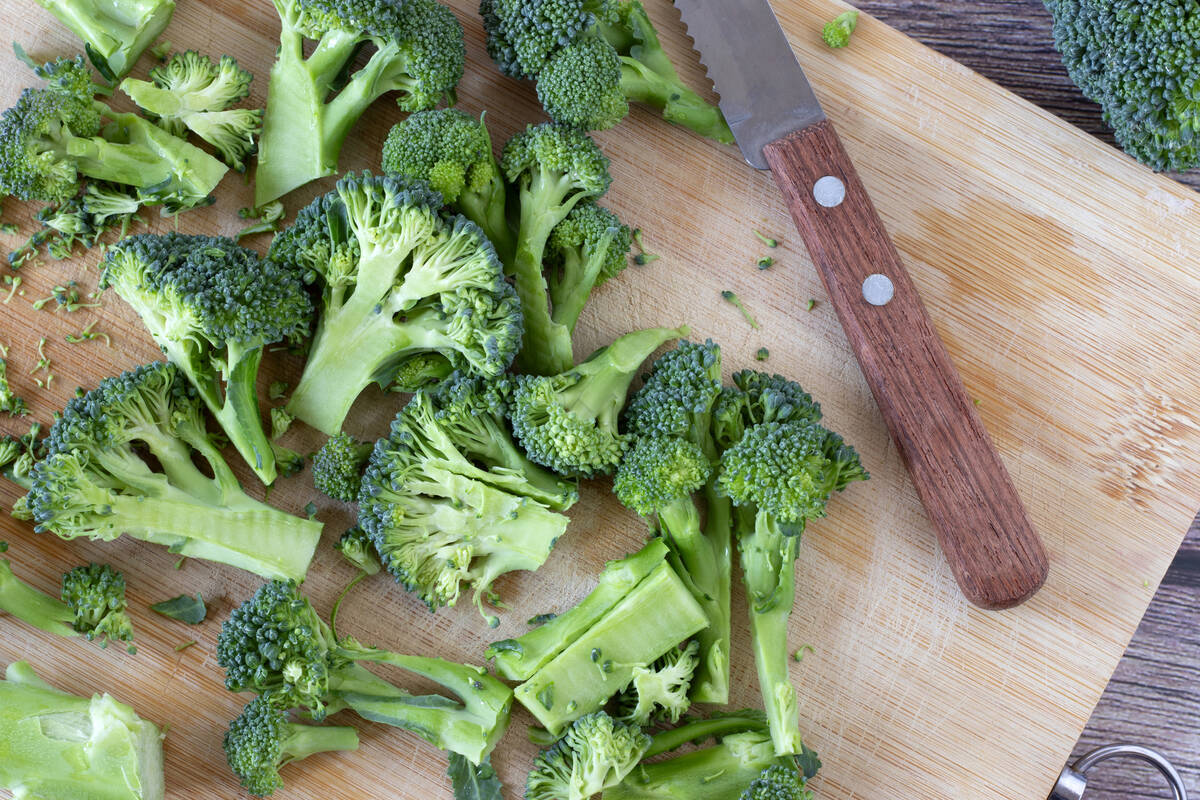How to harness the cancer-fighting properties of broccoli
There’s only so much we can do to prevent cancer, especially breast cancer. Genetics and environmental factors are often out of our control. However, we can usually control the food that we put in our bodies, as long as we have the budget and access to vegetables, fruits, whole grains and lean and plant-based proteins.
Registered dietitians frequently recommend these foods to help ward off any number of health issues, including cardiovascular disease and diabetes. They can also help lower your chances of developing breast cancer, a disease that can affect about 1 in 8 women during their lifetime. The risk of breast cancer increases with age — the American Cancer Society puts the median age for a diagnosis at 62 years old.
However, one breast oncologist notes that taking preventative steps now can protect you down the road, especially when combined with other healthy lifestyle habits. There’s one food she wishes women over 50 would eat more of to cut their breast cancer risk, and she shared a preparation tip that’ll activate cancer-fighting enzymes.
Power of broccoli
A California-based breast oncologist really wants women over 50 to eat more broccoli.
“Broccoli contains prebiotic fiber, plant-based protein and sulforaphane — key cancer-fighting ingredients that feed our gut healthy fibers to reduce inflammation, maintain metabolic balance, reduce DNA damage and kill cancer cells,” says Dr. Bhavana Pathak, a board-certified hematologist and medical oncologist and medical director of Integrative Oncology at MemorialCare Cancer Institute at Orange Coast and Saddleback Medical Centers. “I always pick this up at the grocery store as a secret cancer-fighting ingredient in my kitchen.”
There’s a lot to unpack here. For starters, her recommendation isn’t an attempt to sound like your parents telling you to “finish your broccoli” when you were a kid. A large 2024 Nutrients review suggested that eating broccoli could lower the risk of multiple cancers, including breast cancer.
Also, you may have been surprised to see that broccoli contains the macronutrient of the moment: Protein. Your eyes didn’t deceive you, broccoli has 3 grams of protein per one-cup chopped serving. It also contains 31 calories, zero grams of fat, 6 grams of carbohydrates, 2 grams of dietary fiber and 4 milligrams of iron.
Broccoli has a specific type of fiber called prebiotics. Probiotics — such as those found in cottage cheese and Greek yogurt — have gained attention for their benefits to gut health. The Cleveland Clinic explains that probiotics, or “good” bacteria and yeast, help with digestion, immune system function and fight inflammation. Prebiotics are a type of carbohydrate that “feeds” the good bacteria in our body, as our body cannot digest them.
Data on prebiotics for reducing cancer risk is mixed, with some researchers not reporting an effect. Yet other studies note that dietary fiber — and specifically prebiotics — can improve gut bacteria diversity, including lowering the amount of harmful bacteria associated with estrogen reabsorption (a risk factor for breast cancer).
Broccoli is also a staple in the Mediterranean diet. This meal plan prioritizes produce, whole grains, healthy fats and lean/plant-based proteins. Research indicates it can play a role in lowering breast cancer odds.
Best preparation method
“The main goal is to activate the power of sulforaphane by cutting or chewing broccoli well,” Pathak explains. “Sulforaphane is the product of an enzymatic reaction of two existing compounds within broccoli.”
Indeed, cooking can reduce sulforaphane levels in broccoli. However, a 2018 study in the Journal of Agricultural and Food Chemistry found that chopping the cruciferous vegetable can maintain the levels of this crucial nutrient for cancer prevention.
Don’t have time to chop broccoli? Pathak often doesn’t, either. Her hack: “I will buy pre-chopped broccoli — great excuse.”
When she does have time to slice up broccoli, she’ll set it aside for a few minutes to an hour. Doing so helps the compound develop before she stir-fries her broccoli or adds it to soups and salads.
Other ways to cut cancer risk
Regularly eating broccoli is an excellent way to reduce your risk of breast cancer and other chronic illnesses. However, Pathak urges women over 50 to take a holistic approach to their health. She recommends consuming a balanced diet that prioritizes other prebiotic fiber sources (like asparagus and lentils), plant-centered protein, antioxidants, sulforaphanes (also found in cauliflower, kale and cabbage) and spices (turmeric with black pepper is a favorite of Pathak).
She also recommends minimizing or nixing the following from your diet: alcohol, a toxin that can damage DNA; processed foods with low nutritional density (think items that are high in fat and sugar and low in fiber); burnt foods/charred meats, which can create suspected carcinogens.



















